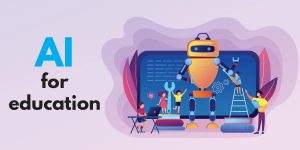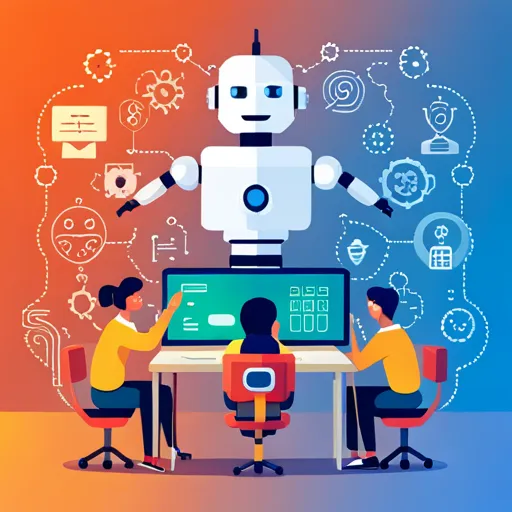Introduction:
In recent years, the integration of Educational AI into various aspects of our lives has been transformative, and education is no exception. The emergence of AI presents a paradigm shift in teaching methodologies, offering unprecedented opportunities to enhance learning experiences, personalize education.
And improve outcomes for students worldwide. This paper delves into the potential of AI, exploring its capabilities, applications, benefits, and the challenges it poses to traditional teaching approaches.
Understanding Educational AI:

AI encompasses a range of technologies designed to augment or automate various aspects of the teaching and learning process. These technologies leverage machine learning algorithms, natural language processing.
And other AI techniques to analyze vast amounts of edu data, adapt to individual student needs, provide personalized feedback, and facilitate interactive learning experiences.
Applications of Educational AI:
Personalized Learning:
AI systems can analyze student performance data to tailor learning materials and activities to each student’s strengths, weaknesses, and learning pace.
Intelligent Tutoring Systems:
AI-powered tutoring systems can provide real-time assistance to students, offering explanations, hints, and feedback tailored to their specific learning needs.
Automated Grading:
AI algorithms can automate the grading process for assignments, quizzes, and exams, saving teachers time and providing students with immediate feedback.
Adaptive Educational AI Learning Platforms:
AI-driven adaptive learning platforms adjust the difficulty level and content of educational materials based on individual student progress, ensuring optimal learning outcomes.
Virtual Educational AI Teaching Assistants:
AI-powered virtual assistants can answer students’ questions, provide additional explanations, and facilitate classroom discussions, enhancing teacher-student interactions.
Benefits of Educational AI:

Personalized Learning:
AI enabled’ personalized learning experiences tailored to each student’s needs, preferences, and learning style.
Improved Learning Outcomes:
By providing targeted support, feedback, and resources, AI helps improve student engagement, comprehension, and academic performance.
Increased Efficiency:
Automation of routine tasks such as grading and data analysis frees up teachers’ time, allowing them to focus on more meaningful aspects of teaching, such as lesson planning and student engagement.
Accessibility:
AI has the potential to make education more accessible to students with diverse learning needs, languages, and cultural backgrounds.
Educational AI is Lifelong Learning
AI platforms can support lifelong learning initiatives by offering flexible, self-paced learning opportunities for individuals of all ages and backgrounds.
Educational AI and Challenges:
Despite its promise, Educational AI also presents several challenges and considerations, including:
Educational AI and Data Privacy and Security:
AI systems rely on vast amounts of data, raising concerns about student privacy, data security, and algorithmic bias.
Equity and Accessibility:
Ensuring equitable access to AI resources and addressing the digital divide are essential considerations in deploying AI.
Pedagogical Integration:
Integrating AI into existing teaching practices requires careful planning, training, and support for educators to maximize its effectiveness.
Ethical Implications:
Ethical considerations, such as the responsible use of AI, transparency of algorithms, and mitigating biases, are critical in the development and deployment of AI.
Conclusion:
AI holds immense potential to transform teaching and learning, offering personalized, adaptive, and engaging educational experiences for students worldwide. However, realizing this potential requires addressing challenges related to data privacy and equity with pedagogical integration, and ethics.
By harnessing the power of AI responsibly and thoughtfully, we can create a future where every student has access to high-quality, personalized education tailored to their individual needs and aspirations.




